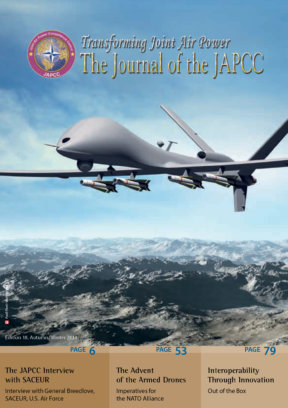Introduction
The JAPCC’s annual conference is fast approaching and JAPCC Staff is eagerly looking forward to the start of the event. We have high expectations that we hope will yield thought-provoking and interesting dialogue. The air power principles of pre-2001 have evolved with recent operational events. The key challenge will be identifying the developments which must lead to significant and relevant transformation, vice marking the incidental needs unique to the conflict in Afghanistan. Inaccurate analysis will increase the likelihood that air forces of the future will suffer from having inappropriate equipment, ineffective organisations and flawed doctrine and Tactics, Techniques and Procedures. Adding to the complexity, will be a framework of great political and economic uncertainty.
The topics for this year’s conference include:
- NATO’s Air Strategy After Afghanistan – a proposal for NATO’s future Air Vision after Afghanistan;
- Unmanned Technology: Key to Success or Limiting Factor;
- Air Power: Independent Action and Independent Effect;
- Education and Training Post Afghanistan: The Dawn of Real Joint Efforts?
Providing advice on the future role of Air and Space Power in NATO might have serious impacts far beyond the military community. We have a clear understanding that our responsibility is to facilitate discussion across the entire NATO community to include sponsoring countries, academia and industry. In order to lay the groundwork for the upcoming discussions, we have produced this ‘Conference Introduction’ that seeks to provide some interesting points of view regarding the proposed topics. We do not intend to answer the many questions that might be raised at this year conference but instead strive to induce thought about the challenges that may be faced in the future. The four chapters presented here do not reflect the JAPCC’s official positions but are the personal opinions of JAPCC Subject Matter Experts.











